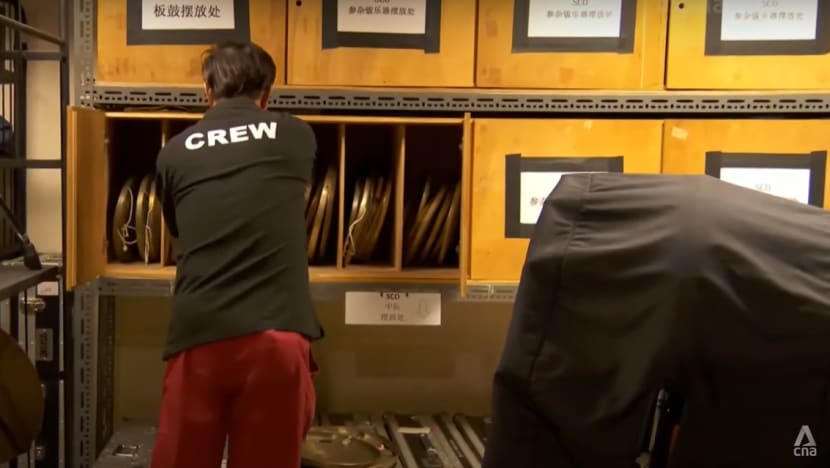Manpower 'biggest challenge' for performing arts sector amid COVID-19 recovery
The total number of tickets sold by ticketing platform Sistic this year is 60 per cent of that in 2019.

Performing arts groups are struggling to raise their curtains due to a shortage in backstage crew and performers.
SINGAPORE: Performing arts groups are struggling to raise their curtains due to a shortage in backstage crew and performers.
The theatre and performance sectors have not been able to resume shows fully, even as other industries recover from the effects of the COVID-19 pandemic.
Mr Gaurav Kripalani, artistic director of Singapore Repertory Theatre, said that manpower woes have been the "biggest challenge" in his industry, which depends heavily on the gig economy.
"Where we're facing the biggest challenge is (a lack of) production managers, stage managers, crew," he said.
"It's really (that) all the key people who make productions happen have gone to other industries or left our industry and haven't come back." Many of them went into the events sector, drawn by a salary increase of at least 30 per cent. This has emptied the Singapore Repertory Theatre of half its full-time positions.
Those who remain have had to double up on roles. Mr Kripalani said it may take years to properly train a fresh group of technicians.
The Singapore Chinese Orchestra faces a similar manpower situation. For every recorded show, the orchestra needs about 15 crew members backstage. However, amid competition for personnel across the industry, the orchestra has had to spread its net wider to look for hires, said its executive director Terence Ho.
He has been finding ways to create a stronger pipeline of talent, including working more closely with students from tertiary institutions to hone their craft.
Such opportunities give these students a practical route to work with the musicians, he said.
“Hopefully, when they graduate, we can offer a place for them to work in the orchestra,” he said.
SLOW TICKET SALES
Another issue is that crowds are not flocking back to the shows that do manage to go on.
Chief executive of ticketing platform Sistic Joe Ow said that the total number of tickets the firm sold this year is 60 per cent of that in 2019.
This is despite ticket sales doubling compared to 2021.
"While we see a lot more events taking place this year, we also see slower ticket sales across the board for all events, with many events fighting for the same wallet share," he said.
He also partly attributed the sluggish uptake to pent-up demand for travel. Mr Kripalani similarly said ticket sales are "unfortunately still very soft".
"There have been … shows recently that have had decent sales, but for all our other shows ticket sales have been very soft, nowhere near pre pandemic levels," he said.
OPTIMISTIC ABOUT FUTURE
Despite the issues, Mr Kripalani pointed to some bright spots.
"There's something very special and cathartic about the communal experience of live theatre that's irreplaceable, which is why live theatre has been so successful and lasted for centuries," he said.
"I actually think people are going to be craving to go back to live performance next year," he added.
Mr Ho is also hopeful that the easing of COVID-19 restrictions in China will mean new foreign hires for the orchestra.
Mr Ow shared the optimism of the industry.
"We expect ticket sales to remain on an upward trend," he said.


















